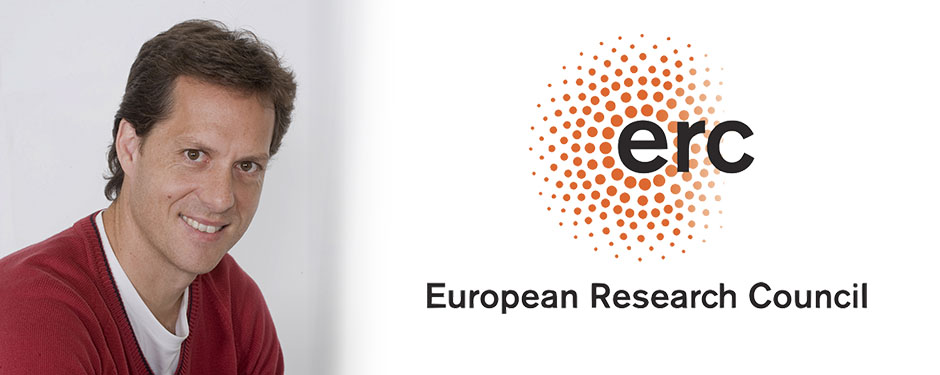The ICN2 Physics and Engineering of Nanodevices group, led by ICREA Prof. Sergio O. Valenzuela, has been assigned an ERC Proof of Concept grant to develop novel scalable ultrafast non-volatile memories. The names of the grantees of the 2019 Round Three were announced on January 10.

A project oriented at developing a novel type of ultrafast digital memories proposed by ICREA Prof. Sergio O. Valenzuela, leader of the ICN2 Physics and Engineering of Nanodevices group, has been awarded a Proof of Concept grant from the European Research Council (ERC). It is one of the 76 innovative research projects selected for funding in the third round of the 2019 ERC Proof of Concept call.
The project, named Topological-Insulator Based Spin Orbit Torque MEMories (SOTMEM), aims to improve the reliability of logic circuits and reduce power consumption and energy loss in microprocessors. New switches for memory applications will be designed using a novel device architecture based on a phenomenon called spin-orbit torque (SOT), which, compared to other devices applying the same principle, are expected to provide improved performance thanks to the employment of topological insulator materials.
Special effort will be put within the SOTMEM project in performing market analysis and patentability studies. Involvement of interested companies and European technology centres will also be sought after, with the aim of designing a business model and bringing this technology closer to potential end users.
Every year the European Research Council funds frontier research projects spanning a variety of topics. The Proof of Concept grants, worth €150,000 each, are oriented at facilitating technology transfer through the establishment of intellectual property rights, patenting and investigation of business opportunity. In particular, they are awarded to ERG grantees – i.e. researchers who were previously assigned an ERC grant to develop a technology – to support them in the early phases of the transition from the laboratory to the market.

